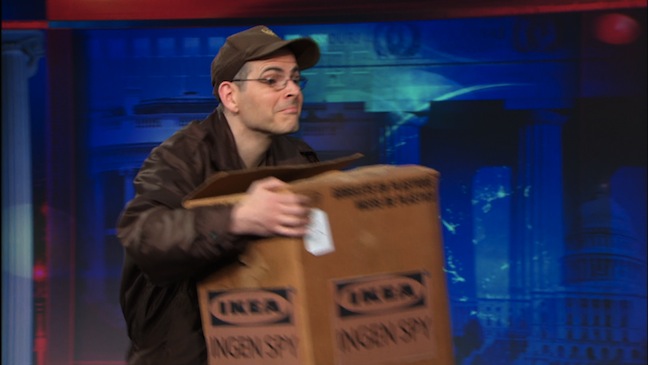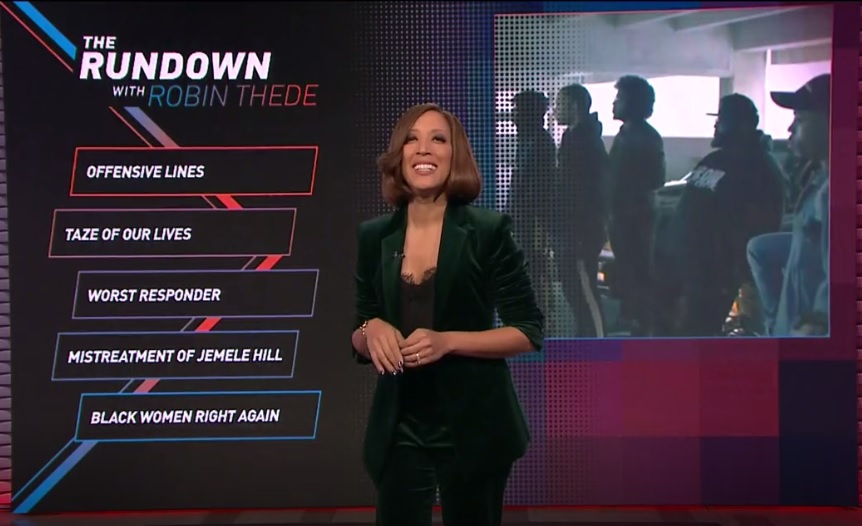Pied Piper returned to Austin for SXSW 2016, with billboards and T-shirts boasting how the app at the heart of HBO’s Silicon Valley is “Helping Humanity Thrive.” The app might be a joke. But so, too, seem the actual tech people at both the massive March festival in Texas as well as the Silicon Valley south of San Francisco.
As the creators and cast gathered to promote their third season on HBO (and already renewed for season four), they spoke time and again of how the actual tech founders they’re lampooning keep wanting us to believe their billion-dollar startups are making the world a better place.
And as the third season already illustrates, the Pied Piper creators are hustling and bumbling in their own schemes to prevent their world-altering algorithm from becoming taken over by marketing and sales.
“When the show premiered at SXSW a couple of years ago, I was in the hotel lobby eating and I heard someone rehearsing their pitch for the tech part of the festival,” said Zach Woods (Pied Piper’s business guy, Donald “Jared” Dunn). “And the guy said, verbatim, he said, ‘Our app is the Mahatma Gandhi of apps.’”
By that SXSW in 2014, a month before the series debuted, everyone involved in making Silicon Valley realized just how much money and ego fueled their real-life counterparts. “The amount of money was stunning,” said executive producer Alec Berg.
Added Thomas Middleditch, who plays Pied Piper founder Richard Hendricks: “In that first pilot episode, Gavin Belson offered Richard to buy Pied Piper — first it was like $100 million — and I think you and (executive producers John) Altschuler and (Dave) Krinsky were like, ‘No, that’s too much. No one’s going to buy that he would turn down $100 million.’ And then when we were shooting, so we turned it down to $10 (million), and then when we were shooting the first season, the news of this Snapchat turning down like $6 billion or whatever it ended up being. So, I guess, egg on our face.”
Series co-creator Mike Judge said “the tech world kept getting crazier and crazier in the course of the year when we shot the pilot. By the time it came out, we were looping in lines to change the amounts. T.J. Miller had improv’d a line about Grindr. Saying he owned 10 percent. We realized if he really owned 10 percent of Grindr, he’d be worth $100 million or something. So we had to say ‘a small percentage’ of Grindr.”
Just imagine that new tech money becoming old money someday.
Woods did. “I like that in the future, like now the old-money families are like the Rockefellers or the Carnegies and from steel and railways. But in 100 years, there’ll be some Little Lord Fauntleroy who’s like, ‘My family money is from Grindr,’” Woods said. “And the Grindrs will look down on the new money.”
Added Middleditch, adopting an elderly voice: “We had to toil and sweat to try to find out who was DTF in a search radius!”
Sounds crazy when you stop to think about it, right?
“The fascinating thing, you’re coupling staggering wealth with kind of the personality trait of engineers, where there’s just no chip that lets them interact with humans on a capable level,” Berg said. And these are the people in charge of that business. That’s what makes the world so fun in a way. It’s just these crazy rich people who can act on any impulse, and a lot of their impulses are bats—t. Which just makes it fun.”
Judge added: “The tech world is so absurd, we’d be like, well, if you put that in the show, nobody would believe it. You kind of do it as is, and it’s pretty ridiculous. The tech world has made it very easy for us.”
“I feel like every time I’m up in San Francisco, someone will come up and they’ll quote something from the show, and say, ‘That happened to me. Verbatim.’” Middleditch said.
“I don’t know what to say. My condolences? Or, I don’t know why I’m saying that. You’re probably still so many millionaires.”
For that first season of research and filming in 2013, producers asked venture capitalists for funny challenges a startup like Pied Piper might face, only to learn there wouldn’t be any. “Every single person just said, ‘Oh. These guys, they’d be able to raise $10 million, no problem. Any VC in the Valley would give them $10 million immediately,” Berg recalled. “Well, that doesn’t really make for an interesting show. How could they f— that up?”
So the challenge became, how can the writing staff keep coming up with new ways for Pied Piper to pay the piper. So to speak.
“We’ve always looked at them as like the Bad News Bears or like Delta House, where they’re constantly outsiders trying to crack the big machine and get a win,” Berg said. “And I do think once these guys are the ones with all the money and all the success, the show sort of ends. So it’s the challenge of doing it year after year is how many different interesting ways can we get these guys to trip up without infuriating the audience? Having it be like Lucy and the football where eventually people go, ‘F—k it. I can’t watch these guys fail again.’” Berg said they did try writing success stories into the second season, and “it just wasn’t fun at all.”
Middleditch turned to Berg on the panel and asked: “Do you think there’s any room for if they get to be ballers, that there’s a show?”
Woods: “That’s Ballers.”
Also on HBO.


